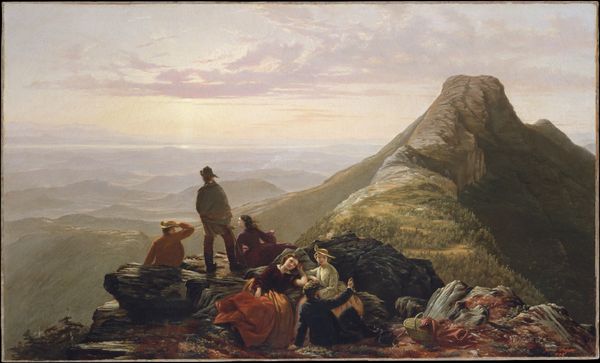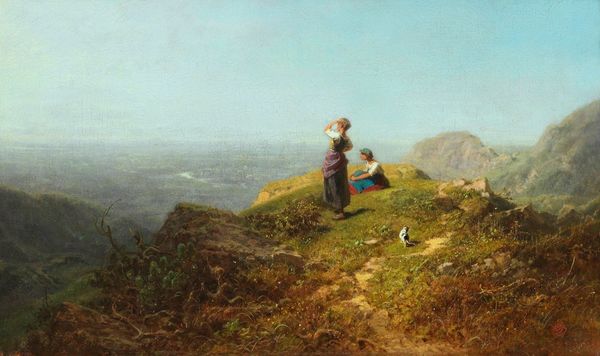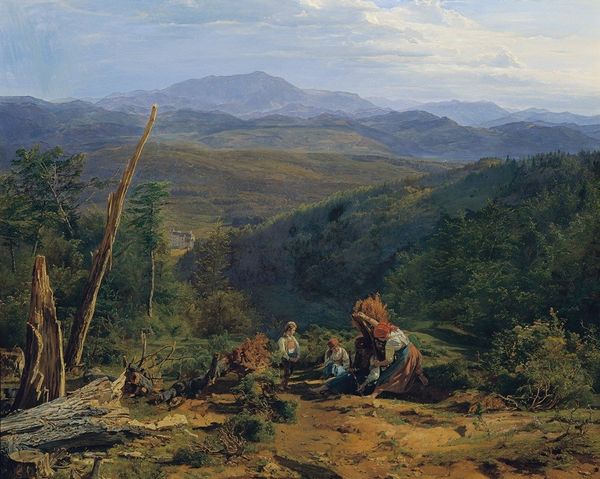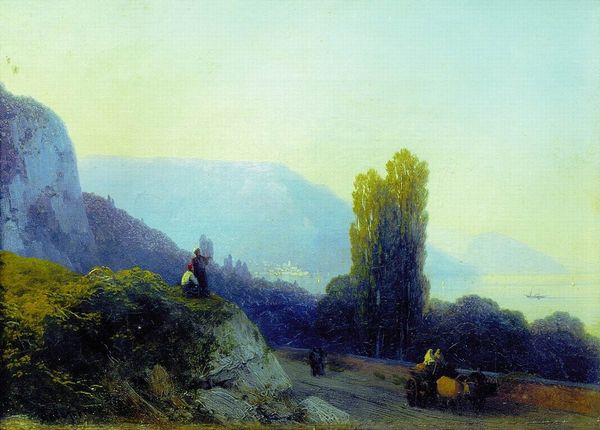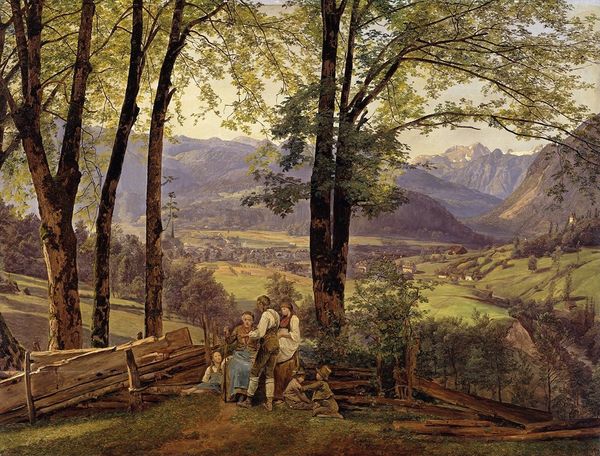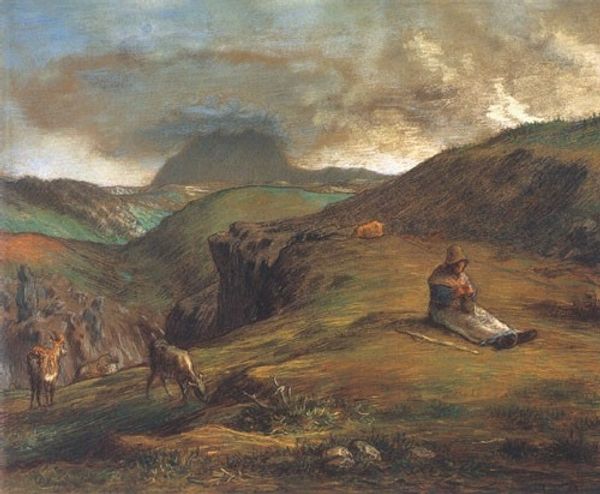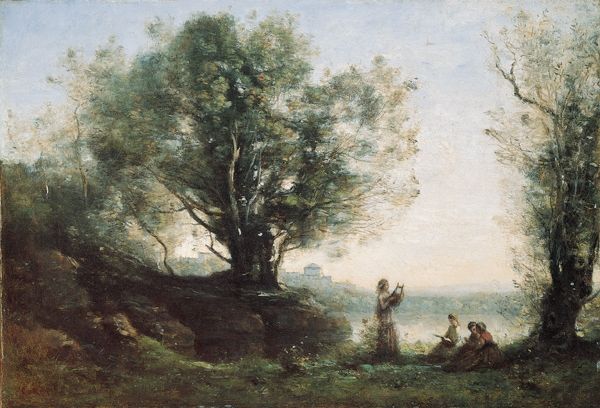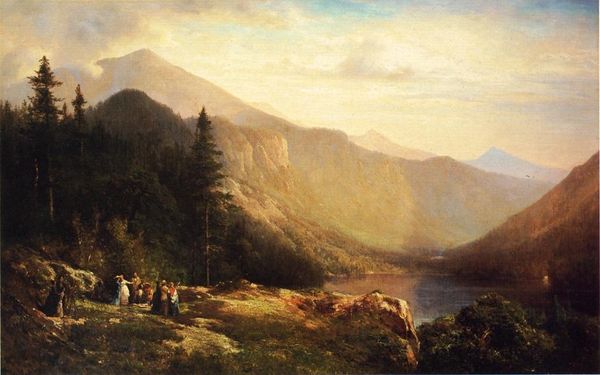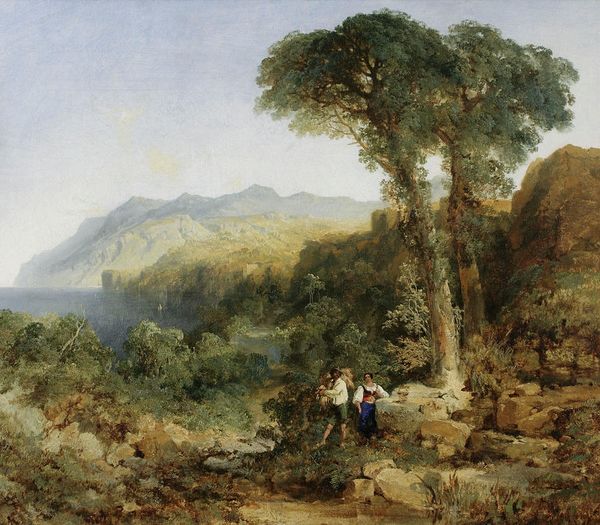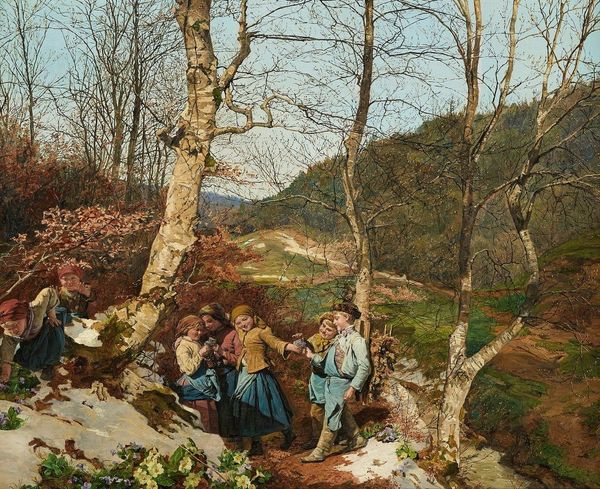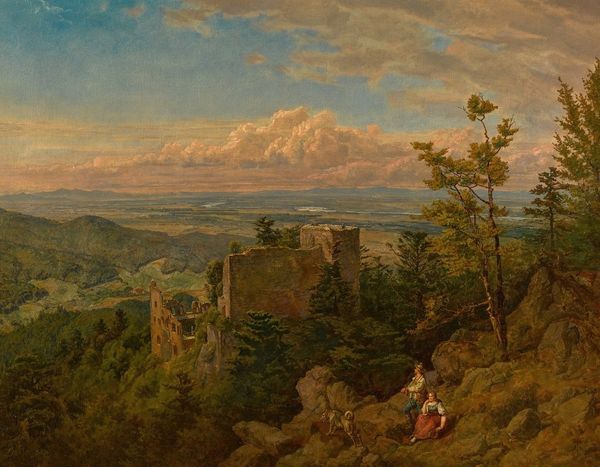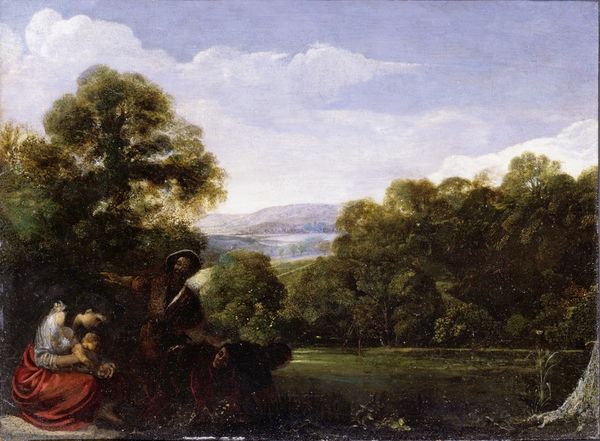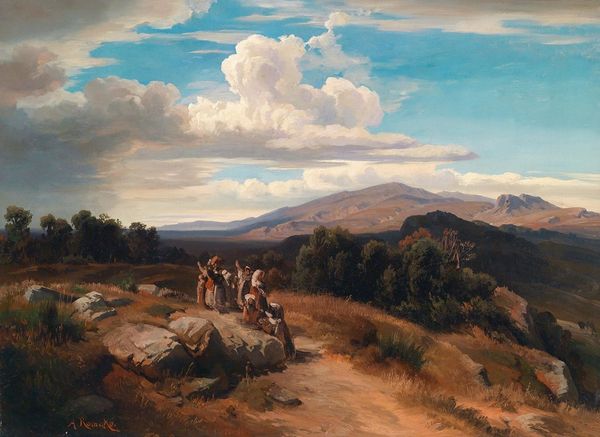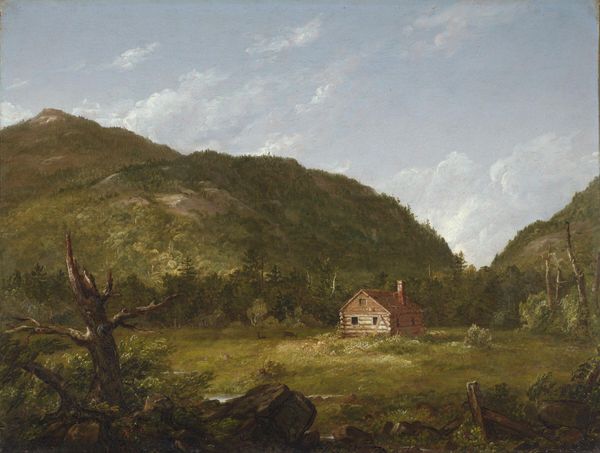
oil-paint
#
portrait
#
oil-paint
#
landscape
#
figuration
#
oil painting
#
romanticism
#
genre-painting
Copyright: Public Domain: Artvee
Curator: Looking at this pastoral scene, "Dirndln auf der Alm," attributed to Carl Spitzweg, what strikes you first? Editor: The immense calm, despite the small gathering of women; there is a very pronounced sense of space in the landscape and intimacy on the level of the women interacting. It feels strangely balanced and perhaps romanticized. What details strike you, coming at it from an iconographic point? Curator: Precisely that, the carefully placed grouping—these women, with their brightly colored clothes against the natural browns and greens, could be interpreted as a symbolic anchor within this vast vista. It speaks to humanity's enduring connection to, and perhaps, stewardship of, the natural world. What undercurrents of socio-cultural context do you perceive here? Editor: It raises questions about representation, right? On one level, it's seemingly idyllic—women at rest. But consider: this is presumably a vision created by a male artist of what leisure, especially women’s leisure, might look like in a rural setting. Are they truly at ease? Is their role confined only to this picturesque relaxation? Curator: That tension is important. Spitzweg may be drawing from deeply rooted archetypes of womanhood, projecting purity and domesticity onto this mountain scene. Their gestures, their proximity—it evokes safety and unity. But could that be misleading in some ways? Is he leaning on stereotypes? Editor: It absolutely could be. I am curious: How can we, today, resist a merely aesthetic consumption of the artwork while honestly wrestling with those visual symbols and underlying societal biases that this piece contains? Curator: Perhaps by allowing that inherent duality. Recognizing the aesthetic harmony but interrogating what lies beneath its surface. Appreciate it, while examining those potentially oppressive representations that existed during its time—and even now. It is indeed a mirror. Editor: I think you are right, that critical engagement enriches the conversation so that these are not only romanticized archetypes frozen in time. Curator: Indeed. Editor: Thank you.
Comments
No comments
Be the first to comment and join the conversation on the ultimate creative platform.
